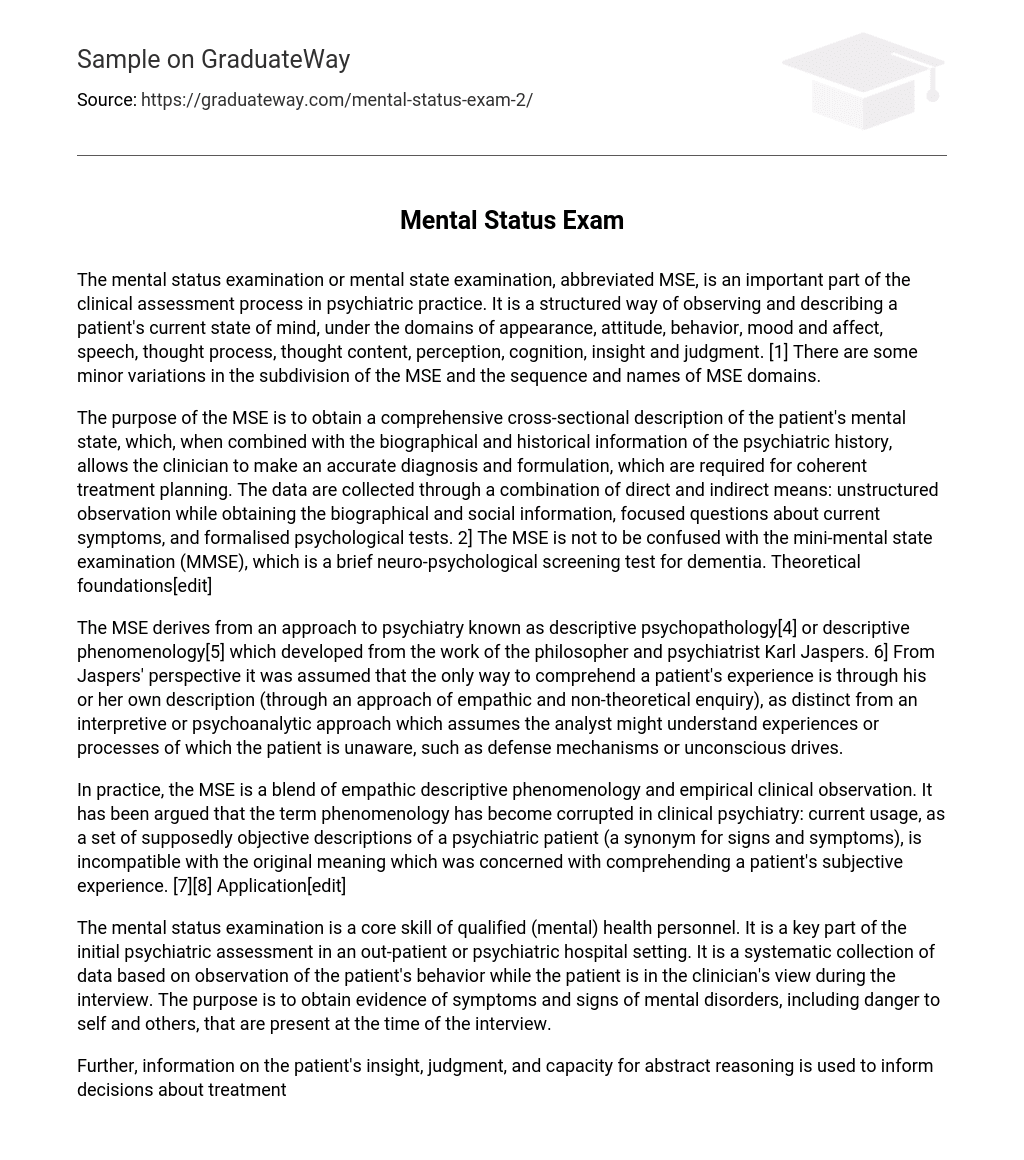The mental status examination, also referred to as the mental state examination (MSE), is a vital part of the clinical assessment procedure in psychiatric practice. It entails methodically observing and describing a patient’s current mental condition. The MSE evaluates different areas such as appearance, attitude, behavior, mood and affect, speech, thought process, thought content, perception, cognition, insight, and judgment. [1] Although there may be minor differences in how the MSE is divided and the sequence and terms used for its domains, it continues to be an indispensable instrument in psychiatric evaluations.
The main purpose of the Mental State Examination (MSE) is to obtain a comprehensive snapshot of the patient’s mental state. This, along with their psychiatric history, helps the clinician accurately diagnose and plan effective treatment. The MSE involves various methods such as observing personal and social information, asking about current symptoms, and using formal psychological tests. It should be noted that the MSE is different from the mini-mental state examination (MMSE), which screens for dementia.
The MSE originates from the field of psychiatry referred to as descriptive psychopathology or descriptive phenomenology. This approach stemmed from the ideas of philosopher and psychiatrist Karl Jaspers. Jaspers believed that in order to understand a patient’s experience, it is necessary to rely on their own description through empathic and non-theoretical inquiry. This approach differs from interpretive or psychoanalytic approaches, which assume that the analyst can comprehend experiences or processes that the patient may not be aware of, such as defense mechanisms or unconscious drives.
The MSE combines empathic descriptive phenomenology with empirical clinical observation in practice. Some argue that the term phenomenology has lost its original meaning in clinical psychiatry, as it is currently used to refer to objective descriptions of a patient’s symptoms, rather than understanding their subjective experience. [7][8] Application[edit]
The mental status examination is a vital skill for qualified (mental) health professionals and plays a crucial role in the initial psychiatric assessment in outpatient or psychiatric hospital settings. This examination involves observing the patient’s behavior during the interview, while they are with the clinician, to gather data systematically. Its purpose is to collect evidence of current symptoms and signs of mental disorders, as well as any potential danger to oneself or others.
Assessing the patient’s insight, judgment, and capacity for abstract reasoning is important in determining treatment strategy and appropriate treatment setting [9]. This assessment involves an informal inquiry using a combination of open and closed questions as well as structured cognitive tests [10].
While the Mental Status Examination (MSE) may be included in a comprehensive physical examination by physicians and nurses, it is often performed briefly and in an abbreviated manner outside of mental health settings [11]. Standard headings are typically used to document information from the MSE, although concise checklists are available for emergency situations involving paramedics or emergency department staff [12] [13] [14].
The gathered information from the MSE, along with the patient’s psychiatric history, biographical details, and social information, is then used to formulate a diagnosis and develop a treatment plan.





